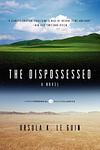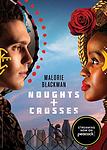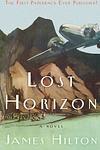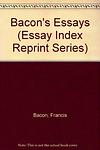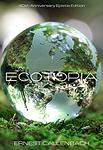The Greatest "Utopias" Books of All Time
Click to learn how this list is calculated.
This list represents a comprehensive and trusted collection of the greatest books. Developed through a specialized algorithm, it brings together 284 'best of' book lists to form a definitive guide to the world's most acclaimed books. For those interested in how these books are chosen, additional details can be found on the rankings page.
Genres
Utopias are a genre of books that explore the concept of an ideal society or world. These books often depict a perfect society where everyone lives in harmony, and all problems have been solved. Utopian literature can be both fictional and non-fictional, and it often serves as a critique of the current society and its flaws. The genre has been popular for centuries, and it continues to inspire readers to imagine a better world.
Countries
Date Range
Reading Statistics
Click the button below to see how many of these books you've read!
Download
If you're interested in downloading this list as a CSV file for use in a spreadsheet application, you can easily do so by clicking the button below. Please note that to ensure a manageable file size and faster download, the CSV will include details for only the first 500 books.
Download-
1. Brave New World by Aldous Huxley
Set in a dystopian future, the novel explores a society where human beings are genetically bred and pharmaceutically conditioned to serve in a ruling order. The society is divided into five castes, each with its specific roles. The narrative follows a savage who rejects the norms of this new world order and struggles to navigate the clash between the values of his upbringing and the reality of this technologically advanced, emotionless society. His resistance prompts a deep examination of the nature of freedom, individuality, and happiness.
-
2. Gulliver's Travels by Jonathan Swift
This classic satire follows the travels of a surgeon and sea captain who embarks on a series of extraordinary voyages. The protagonist first finds himself shipwrecked on an island inhabited by tiny people, later discovers a land of giants, then encounters a society of intelligent horses, and finally lands on a floating island of scientists. Through these bizarre adventures, the novel explores themes of human nature, morality, and society, offering a scathing critique of European culture and the human condition.
-
3. The Histories of Herodotus by Herodotus
"The Histories of Herodotus" is an ancient text that provides a comprehensive account of the Greco-Persian Wars. It is often considered the first work of history in Western literature. The author, often referred to as the 'Father of History', provides a narrative that not only discusses the conflicts between the Greeks and Persians, but also delves into the customs, geography, and history of each civilization. This detailed and pioneering work has greatly contributed to our understanding of the ancient world.
-
4. Utopia by Thomas More
This book is a fictional work that presents a detailed description of an ideal society on an imaginary island located in the Atlantic Ocean. The narrative is presented as a dialogue between the author's character and a traveler who has visited the island. The society described is devoid of private property, with citizens living in communal dwellings, and it promotes education, religious tolerance, and a welfare state. The book explores political, social, and religious customs, providing a critique of European society and offering an alternative model of social organization.
-
5. The Dispossessed by Ursula K. Le Guin
The novel is a profound exploration of two vastly different societies on twin planets, Urras and Anarres. The protagonist is a brilliant physicist from Anarres, a planet with an anarchist society, who travels to Urras, a planet with a capitalist and authoritarian regime. The book explores his struggle to reconcile his anarchist beliefs with the stark realities of a different socio-political system. It's a thought-provoking investigation of human nature, power structures, and the idea of utopia.
-
6. News from Nowhere by William Morris
"News from Nowhere" is a utopian novel that explores a future society founded on common ownership and democratic control of the means of production. In this society, there is no private property, no big cities, no authority, no monetary system, no divorce, no courts, no prisons, and no class systems. This agrarian lifestyle is shown to promote the arts, architecture, and craftsmanship. The protagonist, a man from the 19th century, travels forward in time and explores this idyllic world, engaging in thoughtful dialogues about the nature of this society, its customs, and its values.
-
7. Noughts and Crosses by Malorie Blackman
"Noughts and Crosses" is a thought-provoking novel set in a dystopian society where racial segregation is reversed. It follows the lives of two main characters: a girl from the ruling class (Crosses) and a boy from the underclass (Noughts). Despite their different backgrounds, they form a deep bond that eventually turns into a romantic relationship, challenging the societal norms and prejudices. The novel explores themes of love, racism, and power, offering a poignant commentary on the repercussions of societal divisions.
-
8. Lost Horizon by James Hilton
This novel tells the story of four Westerners who are kidnapped and taken to the mysterious Shangri-La, a utopian lamasery high in the mountains of Tibet. As they get to know their captors and the peaceful way of life in the lamasery, they must each decide whether or not they want to stay in this idyllic paradise that seemingly offers immortality, or try to escape back to their former lives. The story explores themes of time, happiness, and the often complex choice between the familiar and the unknown.
-
9. Erewhon by Samuel Butler
"Erewhon" is a satirical novel set in a fictional country discovered by the protagonist during his exploration. The society in this country is unusual, where illness is considered a crime, crime is treated as a disease, and machines are feared for their potential to evolve and overtake humanity. The book uses this bizarre world to critique various aspects of Victorian society, including religion, morality, and the industrial revolution.
-
10. New Atlantis by Francis Bacon
"New Atlantis" is a utopian novel that explores the fictional island of Bensalem, discovered by a crew of shipwrecked Europeans. The island is home to a society where scientific research and discovery is highly valued, and advancements in technology and science have led to a utopian lifestyle for its inhabitants. The novel explores themes of science, religion, and politics, and presents a vision of an ideal society achieved through knowledge and learning.
-
11. The Blithedale Romance by Nathaniel Hawthorne
"The Blithedale Romance" is a novel about a group of people who establish a utopian society in rural Massachusetts. The story, narrated by a man named Miles Coverdale, explores the dynamics of this community and the relationships between its members, particularly the love triangle between him, a charismatic but mysterious man, and a woman who rejects traditional gender roles. The novel delves into themes of idealism, romanticism, and the harsh realities of attempting to create a perfect society.
-
12. Ecotopia by Ernest Callenbach
The book is a utopian novel that takes place in a fictional country located in the western part of the United States, which seceded from the rest of the country due to differing ecological policies. The society in this country is highly sustainable, with its citizens living in harmony with nature, practicing recycling and renewable energy use, and promoting gender equality. The story is told through the eyes of a skeptical American reporter who gradually comes to appreciate this alternative way of life.
-
13. The First Men In The Moon by H. G. Wells
"The First Men In The Moon" is a science fiction novel that follows two adventurers, a businessman and a scientist, who build a spaceship and travel to the moon. Once there, they encounter a strange civilization of insect-like creatures called Selenites and become embroiled in a dangerous and thrilling adventure as they try to survive and find a way back to Earth. The story explores themes of exploration, colonialism, and the limits of human knowledge, all within Wells' imaginative and thought-provoking narrative.
-
14. Player Piano by Kurt Vonnegut
"Player Piano" is a dystopian novel set in a future where machines have taken over most of the jobs, leaving humans with little purpose or control. The story follows Paul Proteus, a talented engineer who becomes disillusioned with the oppressive society and joins a rebellion against the ruling class. Through Paul's journey, the book explores themes of technology, automation, and the dehumanizing effects of a society driven solely by efficiency and productivity.
-
15. Beyond This Horizon by Robert A. Heinlein
In a future society where genetic engineering has eradicated disease and the economy is managed to ensure abundance for all, the protagonist navigates a world where personal fulfillment and societal contribution are paramount. Citizens are armed and duels are a common means of settling disputes, while those who choose not to improve their genetic lineage are considered second-class. The narrative explores themes of eugenics, social structure, and the quest for meaning in a seemingly utopian existence, culminating in a revolutionary discovery that challenges the very foundations of this carefully constructed society.
Reading Statistics
Click the button below to see how many of these books you've read!
Download
If you're interested in downloading this list as a CSV file for use in a spreadsheet application, you can easily do so by clicking the button below. Please note that to ensure a manageable file size and faster download, the CSV will include details for only the first 500 books.
Download



